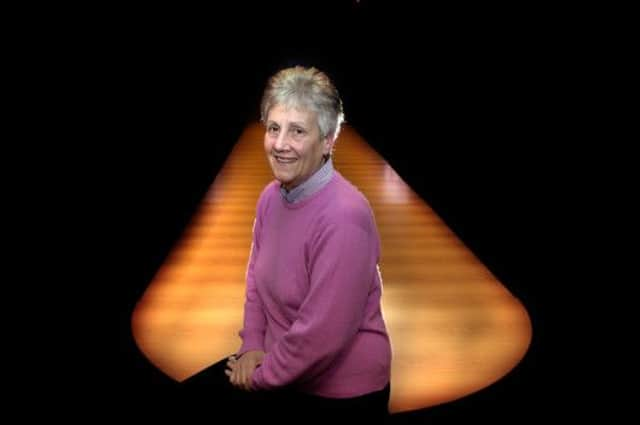Interview: Glasgow 2014 organiser Louise Martin


They would meet with some active opposition, and a lot more passive scepticism, over the weeks and months and years that followed. But they stuck with their idea, and their plan, and it steadily acquired an unstoppable momentum. And, when the Commonwealth Games opening ceremony takes place at Celtic Park exactly three months from now, that idea will have been realised in the most dramatic fashion.
The trio were Louise Martin and Jon Doig, both of Commonwealth Games Scotland, and the then First Minister Jack McConnell. The venue was the Thistle Hotel, home to the Scottish team at that year’s Manchester Games. And the plan, of course, was to bring the Games back north of the Border.
Advertisement
Hide AdAdvertisement
Hide AdAt that stage, Martin explains now, there was no thought of a specific city. First, Scotland’s sporting and political authorities had to agree that a bid was viable. Then individual cities would have the chance to press their own claims. From the vantage point of 2014, it may seem inevitable that Glasgow should be the venue, but back then there was a genuine decision to be made.
“We had just been watching the men’s triple bowls win the gold medal,” Martin recalls of that breakfast meeting. “It was absolutely bucketing rain, but that didn’t dampen our enthusiasm.
“I made a comment, I can’t remember exactly what it was, but it was a ‘What if?’ about the Games ever coming… and then Jon and I sort of stopped. And Jack just looked at me and said, ‘Are you thinking what I’m thinking?’
“And I said, ‘Well, I know what I’m thinking. Can we go for it?’
“He was absolutely cockahoop – ‘Yes, let’s go for it’. But the proviso was: prove that we can do this without bankrupting the country.
“We had two years to assess it. The Commonwealth Games Scotland board were split about going for it. Half of us wanted to, half of us didn’t. By the end there were maybe only one or two dubious ones.
“When we invited expressions of interest, Aberdeen and Stirling did show an interest then realised they couldn’t do it – they would have loved to be involved if we could have taken it nationwide. Then it came down to Glasgow and Edinburgh, and they both got exactly the same piece of work to do.
“The bid Glasgow put in would have beaten any other country at previous Games. The document they submitted was absolutely fantastic. So we took it to government and all parties agreed that we needed to go for this. We had to have all-party agreement and we got it.”
Advertisement
Hide AdAdvertisement
Hide AdThat unanimous backing for Glasgow was the first vital hurdle. The second, five years on from Manchester, came when the Scottish city beat Abuja for the right to host the Games.
Now, with just those three months to go before her dream is realised, Martin, who remains vice-chair of the organising committee as well as being honorary secretary of the global Commonwealth Games Federation, is confident that everything is in place. There is no complacency but, as the countdown goes into its final stages, there is a quiet belief that the city and the country can deliver – and that the team is ready to make this its most successful Games to date.
“It is definitely the best prepared Scotland team,” she says. “We have left nothing to chance.
“Sport Scotland was given extra money from the government to work on the 17 sports that are in the Games.
“We’ve been getting that money for nearly seven years now and we’ve left nothing to chance. Every single one of that team is under pressure to deliver a personal best. And you can’t ask any more than that. If somebody beats them when they’ve done a personal best, you can’t take that away from anybody.
“All being well – injury and illnesses excluded – I think we will see a completely different Scottish team.
“It will be the biggest team we’ve ever had, because it’s a home Games. We couldn’t afford to take that number away. But there will be nobody there for the sake of it – they will be there on merit.”
Having devoted much of her working life to the Commonwealth Games movement, Martin is sure to have her already formidable reputation for achievement further enhanced if all goes well in Glasgow. But, having been a competitor and a coach as well as an administrator, she knows that everyone has a vital part to play.
Advertisement
Hide AdAdvertisement
Hide Ad“Everybody,” she says when asked who should get most credit if the Games are a massive success. “Everybody. It’s one big team. And that includes the spectators because, if spectators don’t come to an event, it’s so flat for the athletes. We know we’re going to have full stadia. We know that the volunteers have been handpicked and are going to be tremendous.
“The athletes have worked so hard for this, the ceremonies are going to be brilliant. Everybody has played their part to the best and it’s one big team effort.”